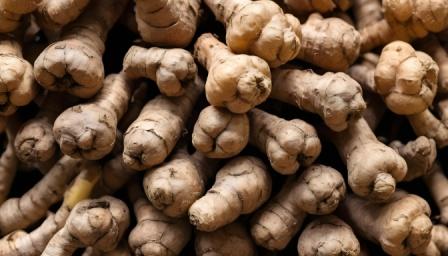In the intricate dance between plants and pathogens, nature has equipped plants with ingenious defense mechanisms to fend off potential invaders. A recent discovery highlights a fascinating strategy employed by plants in their ongoing battle against mold invasions—an evolutionary "Trojan Horse" approach. This groundbreaking revelation not only adds to our understanding of plant-pathogen interactions but also holds promising implications for sustainable agriculture.
Researchers exploring the intricate world of plant defenses have uncovered a remarkable tactic akin to the legendary Trojan Horse. In a study that unravels the molecular ballet between plants and mold, scientists reveal how plants deploy a covert strategy to counteract fungal invasions effectively.
The key player in this botanical defense mechanism is a class of small proteins known as defensins. These proteins, traditionally recognized for their antimicrobial properties, play a crucial role in bolstering the plant's immune system. What sets this discovery apart is the revelation that plants ingeniously deploy these defensins to mask their vulnerability.
When a mold threat is detected, plants unleash these defensins not just as direct weapons against the invading fungi but also as a disguise. The proteins act as a Trojan Horse, infiltrating the fungal cells and subverting their internal machinery. This covert operation disrupts the mold's ability to mount an effective attack, rendering it powerless against the plant's defenses.
The significance of this discovery extends beyond the realm of basic plant biology. Agriculture, a domain constantly grappling with the challenges of crop protection and yield optimization, stands to benefit substantially from understanding and harnessing nature's innovative solutions.
Implementing sustainable agriculture practices has become a global imperative, and the use of chemical pesticides raises environmental and health concerns. By unraveling the mysteries of plant defenses, scientists can envision developing eco-friendly alternatives that leverage the innate capabilities of crops to resist pathogens.
The "Trojan Horse" strategy opens avenues for bioengineering approaches aimed at enhancing plant resilience. Researchers foresee the potential to breed crops with heightened natural defense mechanisms, reducing the reliance on external interventions and promoting a more sustainable agricultural ecosystem.
In the evolving landscape of plant-pathogen interactions, this discovery underscores the complexity of nature's strategies. Plants, in their silent warfare against mold invasions, showcase not only their adaptability but also their sophisticated arsenal of defense mechanisms.
As scientists delve deeper into the molecular intricacies of plant immunity, the quest for sustainable solutions gains momentum. The "Trojan Horse" strategy, a testament to the ingenuity of nature, sparks hope for a future where agriculture harmonizes with the environment, guided by the blueprint written in the very cells of our green companions.







